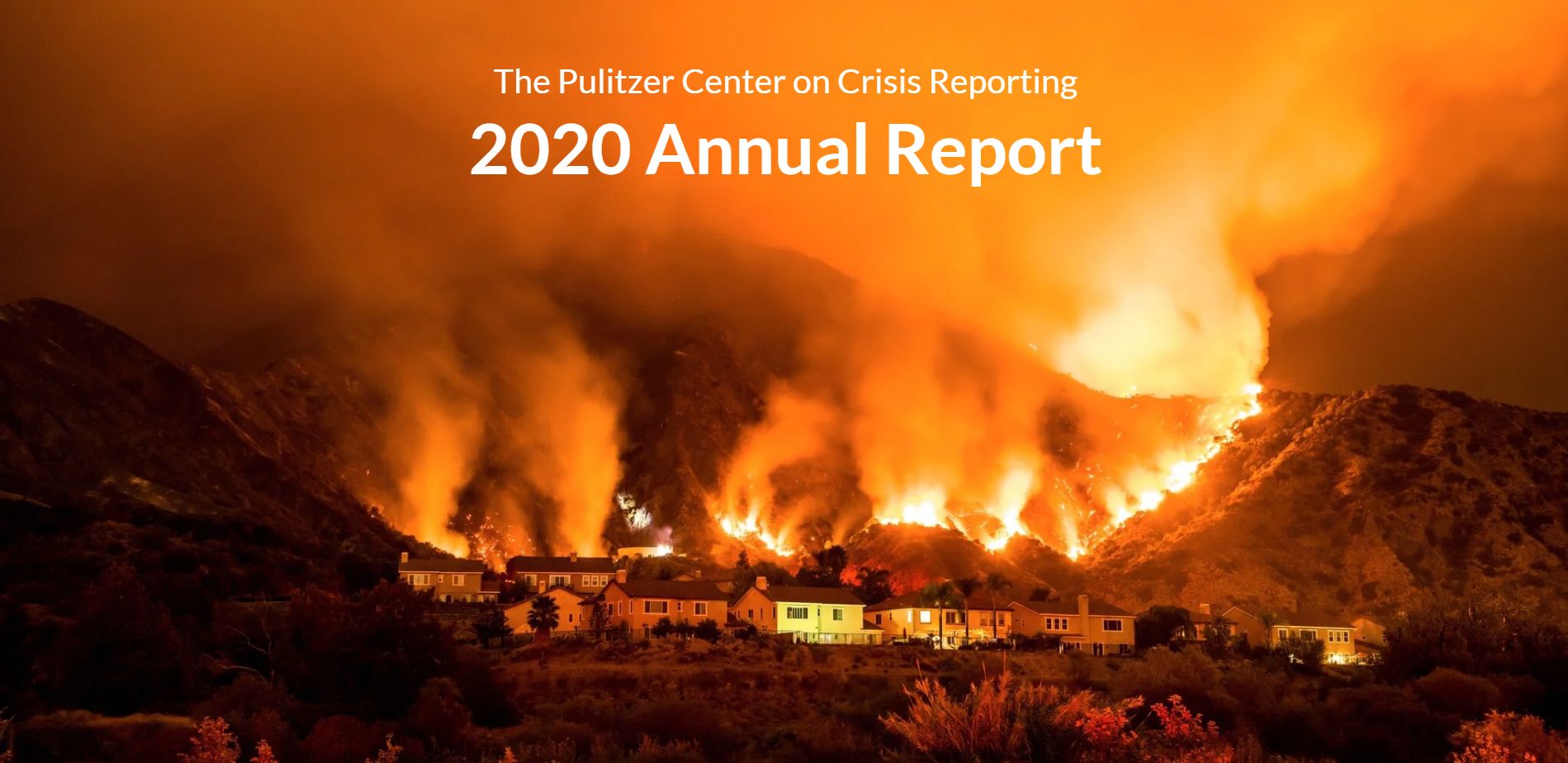The year just past was extraordinarily challenging, from a global pandemic to the reckoning at home over racial justice and a political climate so poisonous as to threaten the very foundations of American democracy. For the Pulitzer Center, responding to the moment we’re in, it has been a time of global expansion, heightened community engagement, and building the capacity we need to play an even bigger role in the media and educational communities we serve.
The special call we posted on COVID-19 last March led to more than 75 reporting projects across the globe, with a focus on collaborative cross-border initiatives that exposed the pandemic’s disproportionate impact on vulnerable communities. Our work on rainforests and climate expanded both geographically, to Africa and Southeast Asia, and thematically, with the launch of our Rainforest Investigations Network and more than a dozen new U.S. projects as part of Connected Coastlines.
Bringing Stories Home, our initiative aimed at fostering enterprise reporting and community engagement, extended its reach to dozens of new communities, with 46 projects in 23 states addressing topics as diverse as police misconduct in Maine and multiple instances of discriminatory treatment of people of color and Indigenous groups, to abuses in Baltimore’s child-support system.
The rise of authoritarian movements has been an increasing focus of Pulitzer Center journalism, with especially strong reporting during 2020 on China’s repression of its Muslim minorities. From India to Belarus, Brazil, Israel, and Hungary, our grantees in recent years have reported on political leaders consolidating power via the ugly tools of disinformation, media manipulation, and the repression or marginalization of vulnerable groups.
In the first week of 2021 we saw those same forces unleashed on the United States Capitol—a mob incited by a defeated American president with the aim of disrupting the peaceful transfer of political power.
That such a mob, mostly white men, could so easily access and trash one of our most hallowed buildings was horrific. As was the contrast between the government’s response to this mob and the very different treatment of Black Lives Matter protesters that we all witnessed in 2020—and the daily evidence, in a dreadful pandemic year, that race and socioeconomic status too often made the difference between the inconvenience of disrupted routines and the actual loss of jobs, health, and life.
Over the course of 2020 we supported dozens of projects aimed at exposing these and similar divides, here at home and across the globe. We have put a premium on reporting that is trustworthy and fair. We have devoted equal energy to bringing important issues into schools and colleges, promoting robust engagement with the roots—in history, culture, climate, and race—of the challenges we face.
This remains a difficult, conflicted time. We don’t pretend that there is an easy path to bridging our many divides. Our hope is to be on the side of the light, making use of the resources we have to promote greater understanding, justice, mutual respect, and equal opportunities for all.
We are so grateful to all of you, to the journalists, educators, supporters, and readers who have been such vital parts of our journey. We look forward to the road ahead. In the meantime, please stay safe—and take best care of yourself, your families, and the communities we love.
Click here to view the full annual report
Emily Rauh Pulitzer, Chair
Jon Sawyer, Executive Director
